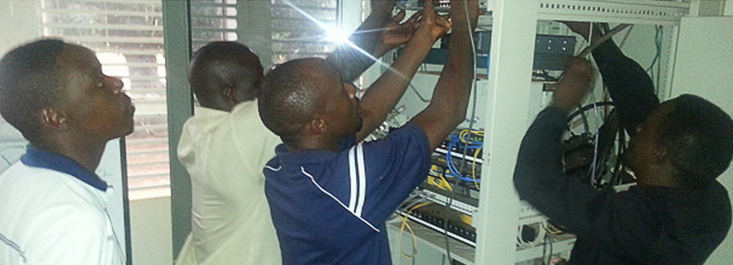Higher education benefits from investments in infrastructure, journals, books and data. Over the years the investment into the development of National Research and Education Networks (NRENs) across Africa has revolutionised research and education’s access to services but often it is the last kilometre of access from the NREN network to the campus that proves to be the roadblock for cost-effective service delivery.
In 2013, the UbuntuNet Alliance, the Network Startup Resource Center (NSRC) and the GÉANT coordinated AfricaConnect project —as well as the International Network for the Availability of Scientific Publications (INASP) identified a shared interest in the issue. Through an INASP pilot project working with TERNET (Tanzania), RENU (Uganda) and ZAMREN (Zambia) additional resources were made available for capacity building.
The pilot brought INASP funded engineers from the three countries to the NSRC and AfricaConnect organised capacity building events – it was a highly synergetic activity supporting the UA and its members. This pilot focused on developing the skill sets of the NRENs and strikingly showed that a relatively small expenditure on improving human capacity has unlocked existing (and significant) investments in e-resources and ICT infrastructure to help support the NRENs and campuses work together for a long-term, sustainable future.
For example, RENU reports that its membership rose from nine to 60 members across the three years and that this rise was “catalysed by the capacity building” organised through the UbuntuNet Alliance. The additional members bring in new revenue and so strengthen the NRENs’ sustainability.

